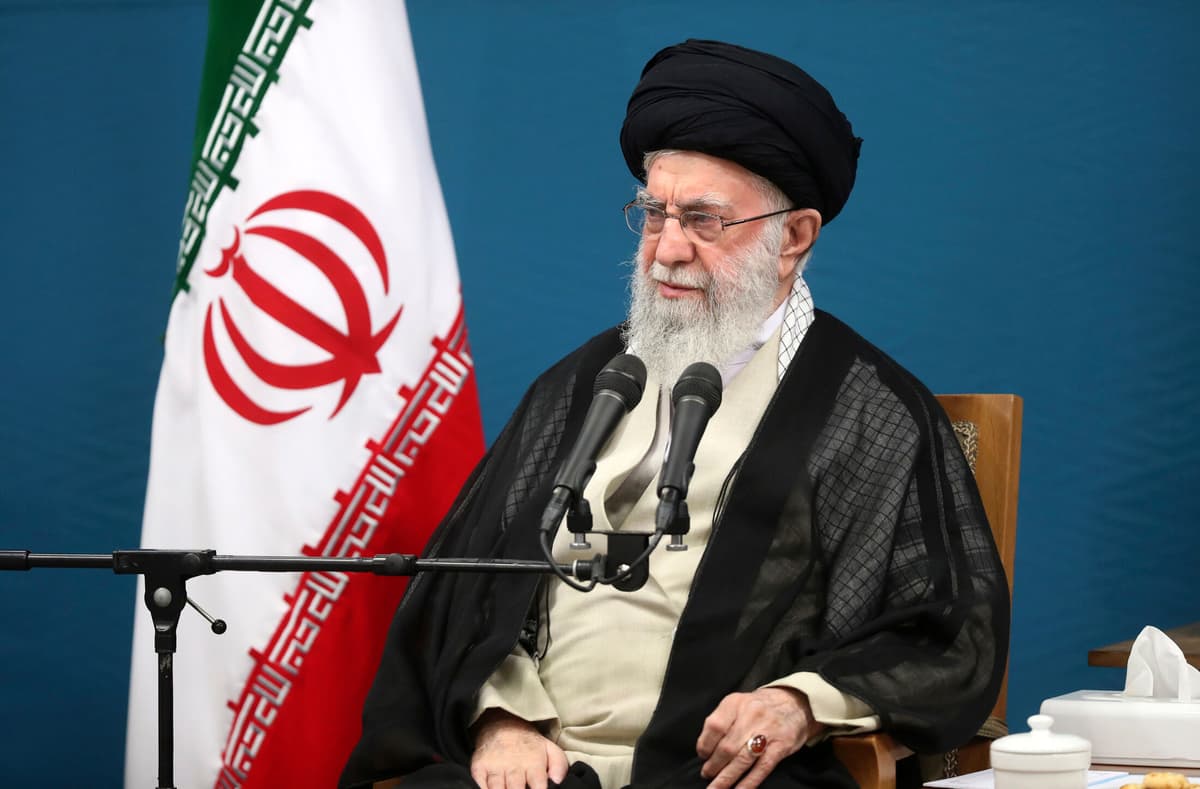Amid Fears Iran Is Rushing Toward a Nuclear Test, European Countries Claim They Would Seek To Snap Back UN Sanctions
Critics are skeptical of the European intentions. The mere threat, though, could signal an attempt to toughen diplomacy when it comes to Iran.

After President Biden, in his final days in office, has issued a fresh $10 billion sanctions waiver for Iran, three European countries are threatening to reimpose all global sanctions that the United Nations levied before the 2015 nuclear deal with the Islamic Republic.
Following a string of losses for Tehran, including major setbacks to proxies Hamas and Hezbollah as well as President Assad’s ouster from Syria, fears are growing that the regime will now dash to test a nuclear device. Reports from the International Atomic Energy Agency indicate that Iran is fast nearing nuclear arms capabilities.
Concerned diplomats from Britain, France, and Germany are writing to the UN Security Council that they are ready to snap back the Iran sanctions, Reuters reported Wednesday. The council’s endorsement of the 2015 nuclear deal, in its Resolution 2234, contains a clause allowing for undoing, or snapping back, the agreement.
Critics are skeptical of the European intentions. The mere threat, though, could signal an attempt to toughen diplomacy when it comes to Iran. At the same time, the Biden administration notified Congress mere days after the November election that it would release $10 billion in Iranian funds frozen in Qatari bank accounts, the Free Beacon reported Tuesday.
“Iran is flush with cash, credit, and sanctions relief money from the Biden team to the tune of hundreds of billions of dollars,” a director of national intelligence during President Trump’s first term, Richard Grenell, who remains a close adviser to the president-elect, tells the Sun. “We’re going to have to deal with getting that money back, otherwise they will continue to fund terrorism.”
The funds in question have been held in escrow in Qatari banks as part of American sanctions that bar the transfer of Iraqi payments for electricity supplied by Iran. Mr. Biden has incrementally waived the ban, citing national security considerations. Republicans and other critics note that he has also declined to enforce oil export sanctions. Iranian oil sales, mostly to Communist China, have quadrupled since 2020.
“You’re going to see a huge shift on Iran,” Trump’s incoming national security adviser, Michael Waltz, told Fox News Wednesday. “We have to constrain their cash. We have to constrain their oil. We have to go back to maximum pressure, number one, which was working under the first Trump administration.”
Trump abandoned the 2015 Joint Comprehensive Plan of Action three years after President Obama orchestrated the nuclear deal. American sanctions on Iran were ramped up under Trump as part of a “maximum pressure” policy. Additionally, Washington attempted to re-impose global sanctions by triggering the UN snap-back option.
At the time, Britain, France, and Germany joined other council members in determining that America had no standing to do so, as it is no longer a JCPOA member. Now, following a series of damning IAEA reports, the European powers say they are ready, “if needed,” to snap back and reimpose all global sanctions.
“I’ve heard the same line for a long time,” a former member of Trump’s National Security Council, Richard Goldberg, tells the Sun. Now with the Foundation for Defense of Democracies, he scoffs at the qualification in the reported note of the three European countries to the Security Council.
“If needed?” Mr. Goldberg asks. “Iran sits on the one yard line of the nuclear weapons threshold, not just amassing near-weapons-grade uranium but now conducting computer modeling on the weapon itself. When will snapback be needed exactly? After they detonate? Snapback was needed four years ago. Just do it, don’t talk about doing it.”
Security Council Resolution 2231 stipulates that each of the parties to the JCPOA — America, Britain, France, Germany, Russia, and Communist China — can notify the council that Iran has significantly violated the deal. Thirty days after such notification, all sanctions that existed prior to the 2015 deal will automatically be reinstated.
Like all other provisions of the resolution, though, that snapback option has an expiration date. By next October it would no longer be available.
The UN nuclear watchdog, IAEA, which is charged with overseeing JCPOA implementation, is reporting increased Iranian violations. The latest report determines that Iran is “dramatically” accelerating enrichment of uranium to up to 60 percent purity, close to weapon-grade 90 percent.
The Israel Defense Force, meanwhile, is training for a possible military operation to neutralize Iran’s nuclear threat, an unidentified top military official said Thursday in a briefing with reporters, Kan News reports.
Prime Minister Netanyahu on Thursday issued a new appeal to the Iranian people to overthrow the regime. Iran spent $30 billion propping up the Assad regime that collapsed in 11 days, he noted in an English-language video with Farsi subtitles. With its aggressive regime ousted, he added, Iran could live in peace with Israel, saying: “I have no doubt that we will realize that future together a lot sooner than people think.”

